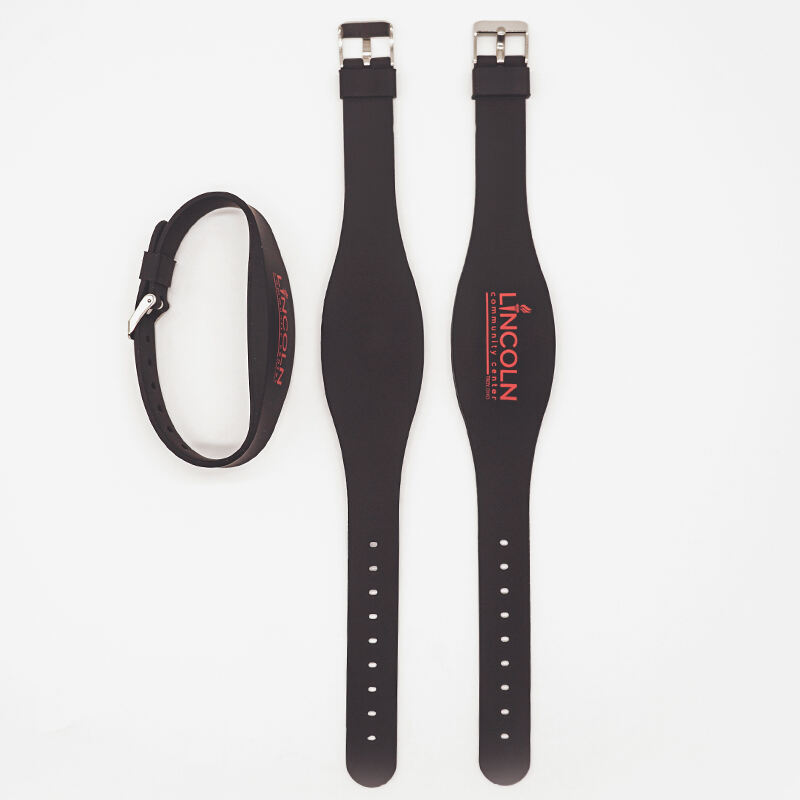
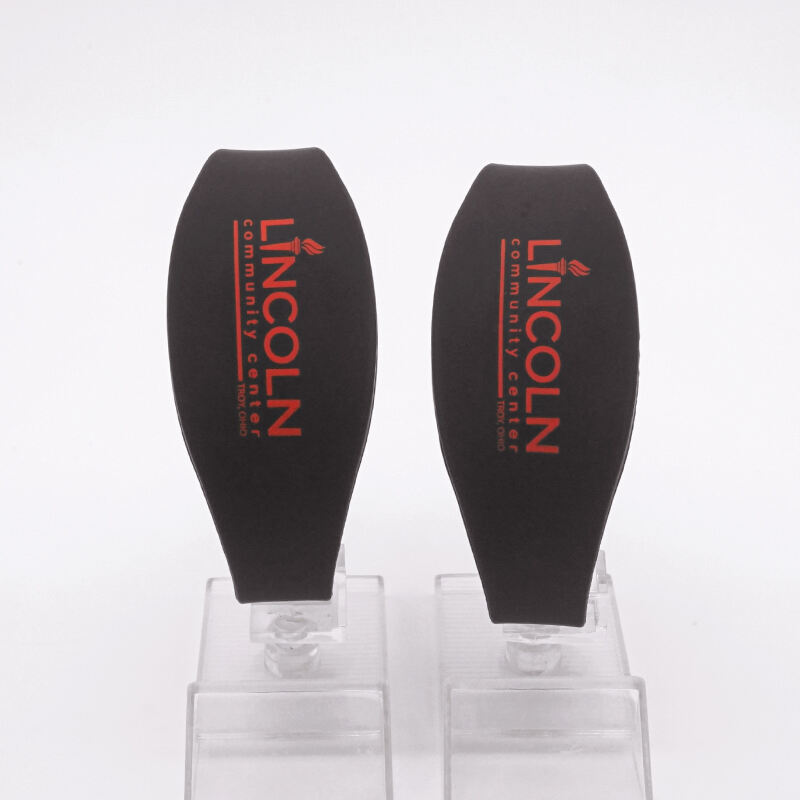
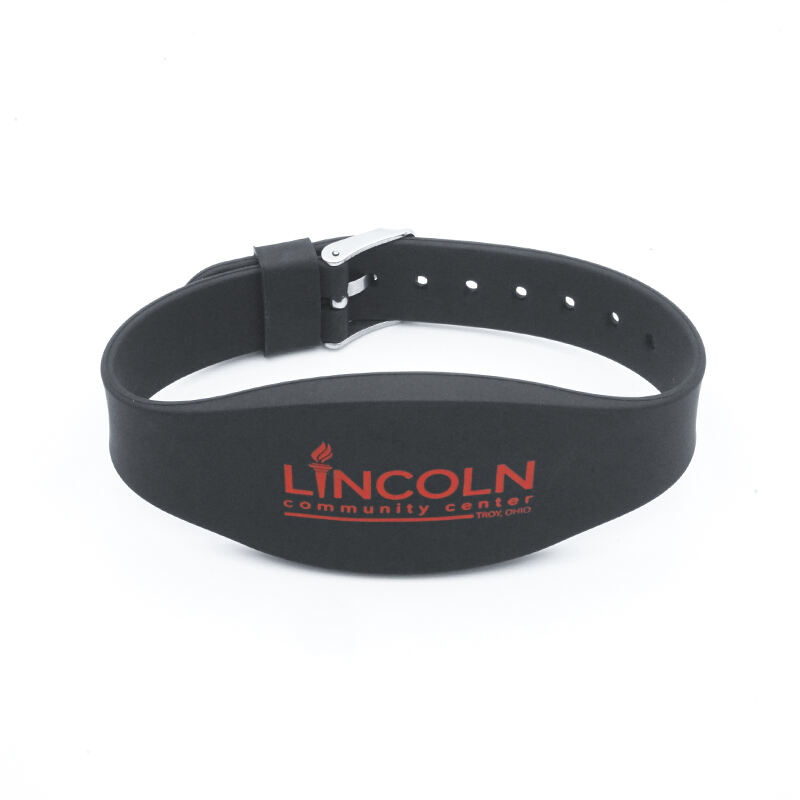
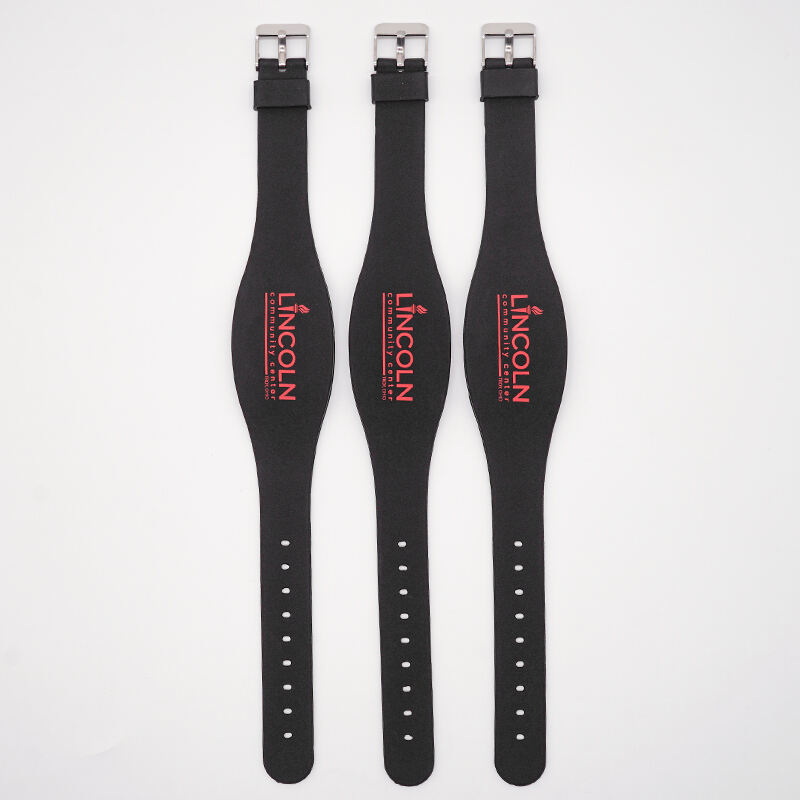
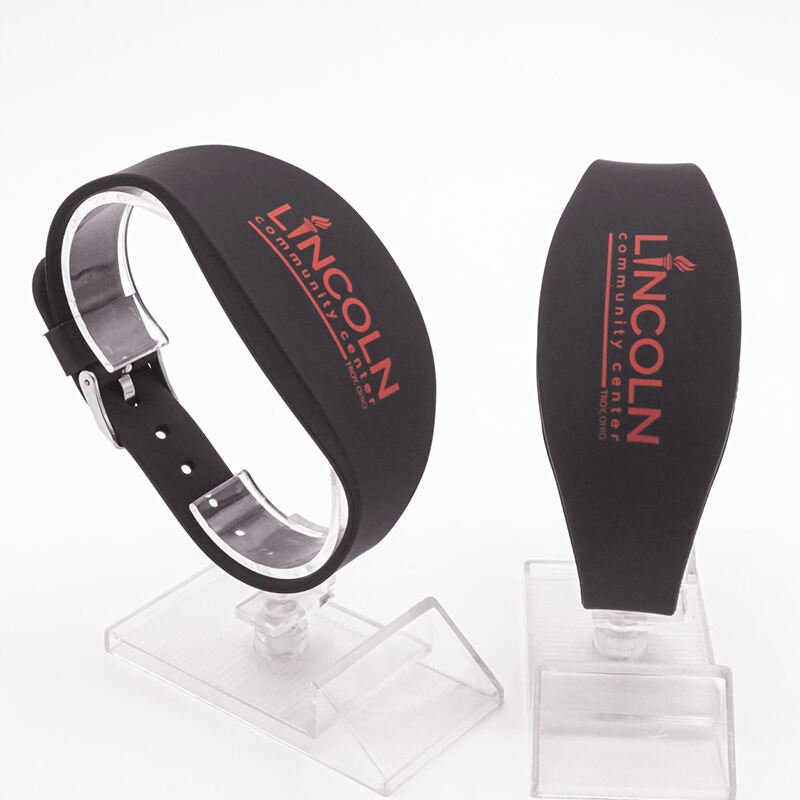





| Product name | RFID wristband |
| Chip type | 125khz ,13.56mhz,860-960mhz |
| Material | PVC, Coated paper, Silicone, Frabic |
| Size | Custom |
| Application | For events, hotels, campus, amusement parks, bus, community access control, fieldwork, and other environments |
| Operating temperature | -30° C -220° C |
An RFID wristband is a wearable device that uses radio-frequency identification (RFID) technology to store and transmit data. It consists of a small chip and an antenna embedded in a wristband or bracelet.
When scanned by an RFID reader, the chip in the wristband sends a radio signal to the reader, transmitting information such as a unique ID number or other data stored on the chip. RFID wristbands are commonly used for access control, cashless payment, and tracking in various industries, including hotels, amusement parks, concerts, and healthcare facilities.
They are often preferred over traditional tickets or keycards because they are more convenient, secure, and can be easily customized for different applications.
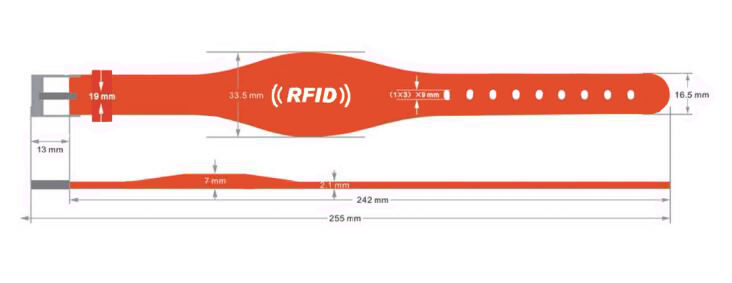
| Product name | RFID wristband |
| Chip type | 125khz ,13.56mhz,860-960mhz |
| Material | PVC, Coated paper, Silicone, Frabic |
| Size | Custom |
| Application | For events, hotel, campus, amusement park, bus, community access control, field work and other environments |
| Operating temperature | -30° C -220° C |
XINYERFID supplies RFID wristbands and NFC wristbands with various materials in different shapes, to meet the different requests of fields. Like Silicone Wristband, PVC Wristband, Paper Wristband, Woven Wristband, and One time use paper wristbands. Silkscreen Logo or numbering is a popular personalization.
The NFC and RFID wristband bracelets offer an efficient and secure way to manage your data and access. Enjoy the convenience of these adjustable wristbands at your next event or festival. With these wristbands, you can unlock the potential of NFC technology and take your experience
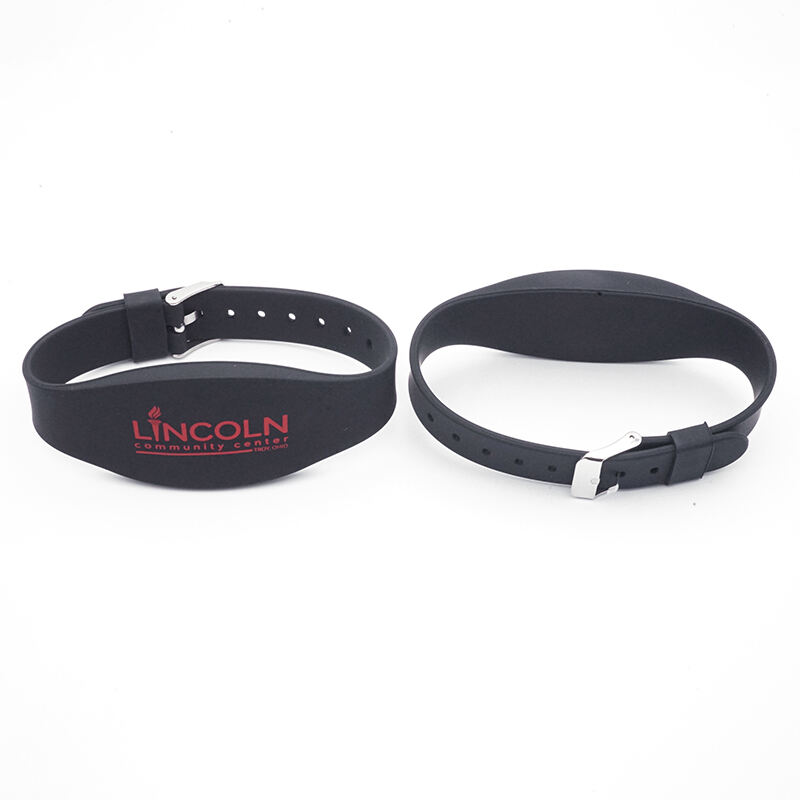
| LF 125KHZ CHIP(Option) | |||
| Chip Name | Protocol | Capacity | Frequency |
| TK4100 | 64 bits | 125 kHz | |
| EM4200 | ISO 11784/11785 | 128 bits | 125 kHz |
| EM4205 | ISO 11784/11785 | 512bit | 125 kHz |
| EM4305 | ISO 11784/11785 | 512 bits | 125 kHz |
| EM4450 | ISO 11784/11785 | 1K | 125 kHz |
| T5577 | ISO 11784/11785 | 330 bits | 125 kHz |
| HITAG 1 | ISO 11784/11785 | - | 125 kHz |
| HITAG 2 | ISO 11784/11785 | - | 125 kHz |
| HITAG S256 | ISO 11784/11785 | - | 125 kHz |
| HITAG S2048 | ISO 11784/11785 | - | 125 kHz |
| HF 13.56 MHz Chips(Option) | |||
| Chip Name | Protocol | Capacity | Frequency |
| MIFARE Classic 1K | ISO14443A | 1 KB | 13.56 MHz |
| MIFARE Classic 4K | ISO14443A | 4 KB | 13.56 MHz |
| MIFARE Ultralight EV1 | ISO14443A | 80 byte | 13.56 MHz |
| MIFARE Ultralight C | ISO14443A | 192 byte | 13.56 MHz |
| MIFARE Classic S50 | ISO14443A | 1K | 13.56 MHz |
| MIFARE Classic S70 | ISO14443A | 4K | 13.56 MHz |
| MIFARE DESFire | ISO14444A | 2K/4K/8K bytes | 13.56MHz |
| ICODE SLIX | ISO15693 | 1024 bits | 13.56 MHz |
| ICODE SLI | ISO15693 | 1024bits | 13.56 MHz |
| ICODE SLI-L | ISO15693 | 512bits | 13.56 MHz |
| ICODE SLI-S | ISO15693 | 2048bit | 13.56 MHz |
| I CODE SLIX2 | ISO15693 | USER 2528bits | 13.56 MHz |
| NTAG213 | ISO14443A | 180 bytes | 13.56 MHz |
| NTAG215 | ISO14443A | 540byte | 13.56MHz |
| NTAG216 | ISO14443A | 180 or 924 bytes | 13.56 MHz |
| NTAG213TT | ISO14443A | 180 bytes | 13.56 MHz |
| NTAG424 DNA TT | ISO14443A | 416 bytes | 13.56 MHz |
| UHF 860-960MHz Chips(Option) | |||
| Chip Name | Protocol | Capacity | Frequency |
| Alien H3(Higgs 3) | ISO18000-6C | EPC 96-496bits、User 512bits | 860~960 MHz |
| Alien Higgs 4 | ISO18000-6C | EPC 128bits、User 128bits | 860~960 MHz |
| Impinj Monza 4 | ISO18000-6C | 96 bits | 860~960 MHz |
| Ucode 7 | ISO18000-6C | 128bits | 860~960 MHz |
| Ucode 8 | ISO18000-6C | EPC 128bits | 860~960 MHz |
| Ucode 9 | ISO18000-6C | EPC 96bits、User 32Bits | 860~960 MHz |
| Monza 4QT | ISO18000-6C | 512bits | 860~960 MHz |
| Monza R6 | ISO18000-6C | 96bits | 860~960 MHz |
| Monza R6-P | ISO18000-6C | 32bits | 860~960 MHz |
| EM4124 | ISO18000-6C | 96bits | 860~960 MHz |
| EM4126 | ISO18000-6C | 208bit | 860~960 MHz |